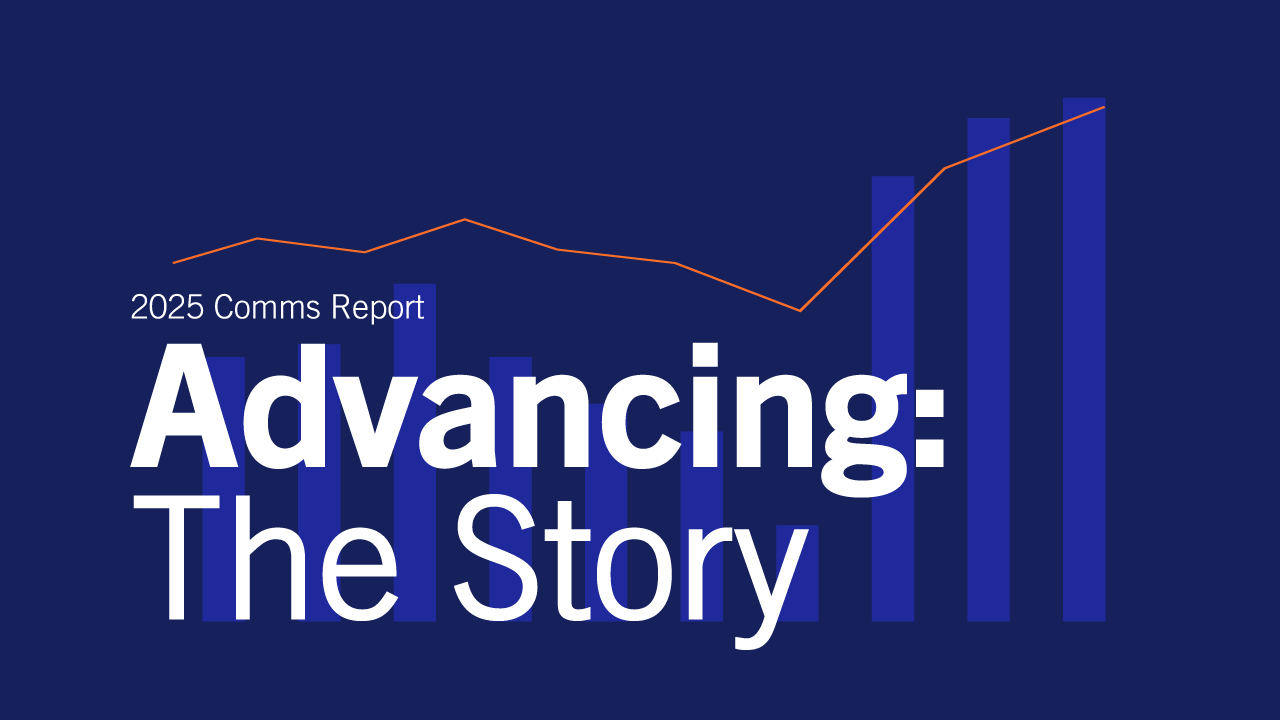At Cision, it’s around this time where we really become media obsessed. It’s our mission to find out what makes journalists tick, what struggles they’re facing, and how PR professionals can enhance their relationship with the media – and it’s even more important to know in these not so normal times. Our recently launched 2020 State of the Media has a lot of the answers and we’ve been reaching out to individual industry professionals to tell us more. Ian Murray from the Society of Editors tells us his thoughts.
Hi Ian, can you tell me a bit about yourself and the Society of Editors…
I’ve been a journalist now for four decades. After school, I went straight in at ground level at my local weekly newspaper where I learned a lot from some fabulous journalists. Something that has stuck with me from back then is ‘anyone can get a story, but a good journalist will get the story.’
I then moved into daily newspapers and eventually down to the south coast of Bournemouth where I became the managing editor of the Echo there, before becoming editor of the Southern Daily Echo in Southampton. Three years ago, I took over the running of the Society of Editors.
The Society of Editors began 20 years ago. It represents national and regional print press, the news magazine industry, broadcast, and online. We speak on behalf of editors and campaign for freedom of expression and the public’s right to know.
There’s no ignoring COVID-19. How do you think this has impacted the media?
It has significantly impacted commercial media reliant on advertising for revenue purposes. The advertising market has collapsed so publications have taken a huge hit, especially the regional press. The decline in people physically walking out of their homes to buy print newspapers has also had a tremendous effect on outlets.
The press was already facing challenges, and COVID-19 has exacerbated these challenges. There are concerns around the survival of the press in this climate, but the government are aware of the problems and have spoken out about the importance and value of media in this time.
What types of stories do you think editors are looking for right now?
No matter how big the crisis or story, there comes a point where the public has fatigue towards it. It’s not that they’re not interested because they are, but people are looking for something else. Editors will be on the hunt for new ways of packaging COVID-19 and providing important information alongside stories of hope and good news. In times of crisis, it’s vital to keep people informed but play a part in the solution, not the problem.
What do you believe were the biggest challenges for journalism in the last 12 months?
Before coronavirus struck, a big challenge was to meet the ever-growing expectations from the public for fact-based, well-researched news while resources have been dwindling.
Across the board, the media has performed brilliantly well around this. As an industry, the media isn’t very good at shouting about their success but there are amazing investigative projects, campaigns and reports to celebrate. We’ve still achieved this despite lack of resources and it’s heartening to see media organisations ploughing their resources into top-notch journalism in a world where it’s easy to go for clickbait.
While trust is increasing in the media, we know that it’s still an ongoing issue. Are there any ways in which journalists can gain trust back?
If we look back on the unfortunate scandals such as the hacking incidents in the mainstream media, they coincided with the explosion of social media. The rise of social media telling you what you want to hear has blurred the lines of true and false. I think it takes time to get through this stage until reality sinks in and people realise that what that paper was saying was true and what social media was ‘gossip in the playground’.
To gain trust, journalists need to prove that what they are saying is correct – provide sources so readers can fact-check and build the research into the story.
Do you see social media as a threat to traditional media or do you think they can work side by side?
They have to work side by side and I think we’ll see the wild west aspects of social media begin to be reined in. I liken social media to all new forms of communications – if you go way back to when printing press came along, many pamphlets were printed (a lot of it fictitious) and distributed before regulations were put in place. Ever since then, there’s been an explosion of a new form of information every so often, and then it has been controlled within the already enforced law.
Can you offer any advice on how to improve pitching?
Papers are hard-pressed for resources. If journalists can receive a pitch that is well researched and delivered to them in a usable format that’s easy to adapt or adopt, they will be grateful. Journalists want to be able to prove that it’s credible.
Also, dare to look at the counterargument where possible.
What makes a source/pitch/story more relevant?
Think about why the outlet’s audience should give a damn and how you can make a boring story interesting to as many people as possible. How can you get the readers to empathise, sympathise, or understand how it affects them? Come up with that human-interest angle.
What is the number one thing that PR professionals can do to help journalists?
Don’t bother journalists with things that aren’t going to fly or pitches that don’t mean anything to their readers. Make sure news desks know what you’re an expert in and that you can offer information and assistance on that topic.
Do you see any trends and challenges arising in the future?
The big stress and strain is navigating the current crisis. Finding ways that good news can be funded online is another challenge.
There’s going to be the mother of all enquiries into what’s gone on regarding COVID-19. We’re going to be coronavirus obsessed for quite some time, as we discuss things like the economic impact.
Want to find out what 3,200 journalists from 15 countries around the world think about the media climate? Download our 2020 State of the Media Report now.
Most Recent Posts
Cision Resources
-
E-books and Guides
Comprehensive how-to guides on strategy and tactics
-
Case Studies
What are other brands doing – and how can we learn from them?
About Charlie Gooddy
Charlie Gooddy is the Content Marketing Manager at Cision UK. You can reach her on charlotte.gooddy@cision.com
Learn More. Do More. demo new
PR Tips, Case Studies, and Product Updates

[On-Demand Webinar] The Next Generation of Media Intelligence: From Gorkana to CisionOne
Explore CisionOne, a revolutionary media intelligence platform, and the evolution of Gorkana. Learn key features and strategies from Luke Williams, CisionOne Product Marketing Manager. Elevate your media outreach to new heights!

